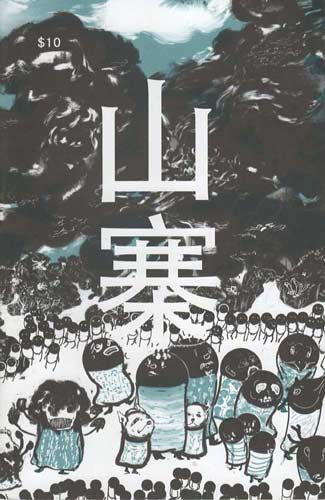Pacifica Literary Review – Summer 2014
Pacifica Literary Review embraces stories dealing with concepts that represent the reality of the world in which they are written. This is evident in the poetry, prose, and art of this issue. The things people wish they could say, or experiences that they may have had but never talk about, find their way onto the page in bold, eye-catching print. Individual poems, stories, and images work together to form a collective narrative of the ever-changing world in which we live.
Pacifica Literary Review embraces stories dealing with concepts that represent the reality of the world in which they are written. This is evident in the poetry, prose, and art of this issue. The things people wish they could say, or experiences that they may have had but never talk about, find their way onto the page in bold, eye-catching print. Individual poems, stories, and images work together to form a collective narrative of the ever-changing world in which we live.
This issue opens with a hard-hitting voice that doesn’t hold anything back; this voice is found in Brittany Dennison’s poem “Pocket Dial.” Unfortunately, some people know the horror that comes with realizing they have pocket dialed someone while talking about that person, but the speaker of this poem takes that feeling to the next level. In a response to hearing her lover, who has pocket dialed her, declare “When we get to the top of the mountain, we’ll get our / dicks sucked by hot chicks,” she doesn’t hold back the venom, and delight, that comes from “knowing that / bringing a blowjob to fruition is a greater challenge than / the climbing” up the mountain. Readers will immediately see the humor of this candid response not because of the words themselves, but rather because of where the words come from. That’s a place that most people can relate to from experience. While the world was once a place where feelings and thoughts were best left within the minds of those who have them, this magazine provides a selection of poetry that gives a voice to these thoughts and highlights an emerging world of increasing expression.
Maxim Loskutoff in “Medicine Lake” brings to the page the uncomfortable and often awkward experiences that people face but can rarely put into words. In this prose piece, a father and son—Henry and Mark—find themselves dealing with the strained state of their family, which has emerged out of Henry’s financial struggles. Both men travel to the family lake cabin where Mark is faced with the painful task of convincing his father that the cabin’s only remaining value is in selling it at the best price before the bank can claim it for less. For Henry, the value of the cabin is more than anyone can afford. The communication between the two is apprehensive while the internal contemplation for each man is rife with the emotion that neither can ever express to the other. The tension of the awkward moments these characters experience is something readers can appreciate. Throughout each piece of prose, the magazine invites readers to connect to things they are certain to recognize. Life can be awkward and uncomfortable and often cannot be put into words. The selections found in this issue of Pacifica Literary Review are different in plot and theme, but are similar in that they are crafted to maximize readers’ connection with the expression of these uncomfortable moments.
Art by Niki Waters, Lance Hewison, and Jon Garaizar provide visual representations of the variety of voices that exist in the reality of today. The first voice is the smooth and vibrant watercolor work by Waters, such as her piece “That One Time When. . .” The magazine then leads us to the more textured, earth tones of Hewison’s oil paintings in the likes of his “Wreathed, from Vestiges.” Closing the entire magazine are Garaizar’s black and white drawings, including “See You Soon.” The art follows the voices of life: vibrant and smooth, earthy and rough, and sometimes just black and white. These are the voices used throughout the poetry and prose, tying all of the works together for a larger narrative.
The poetry, prose, and art say the things that are often left unsaid, show the moments that are often felt but left unseen, and capture the variety of voices that are ready to be heard. In this issue, the collection of works create an experience in which readers will certainly find a voice that is similar to their own, reflecting the reality of a diverse and ever-changing world.
[www.pacificareview.com]
Reviewer bio: Jenifer Butler is a graduate student at Coastal Carolina University in the Master of Art in Writing program. She has served as an editorial assistant for Waccamaw, and her work has been published in Outrageous Fortune.





